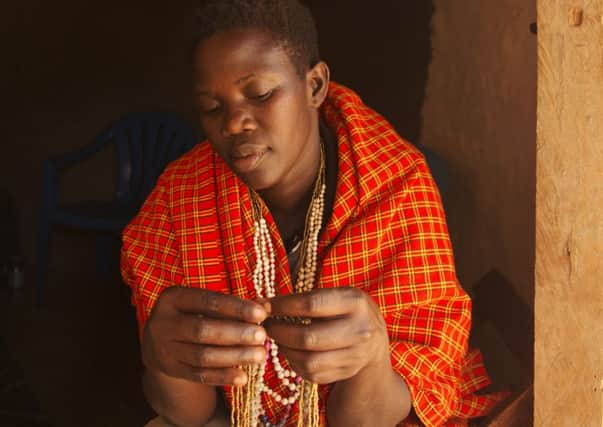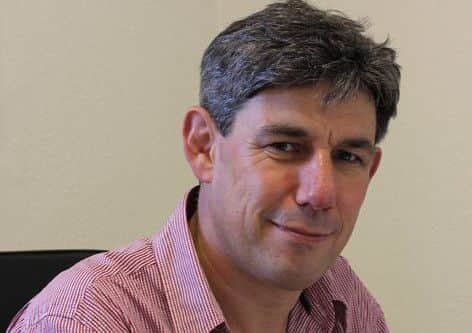Alistair Dutton: Child soldiers forced to fight are victims too, unwelcome in the villages they were taken from


But for those growing up surrounded by war and violence, the impact can be even more damaging.
Research from the Child Soldiers World Index shows that children have been used in hostilities in at least eighteen countries since 2016. That is almost 10 per cent of the countries in the world.
Advertisement
Hide AdAdvertisement
Hide AdIndeed, the level of harm inflicted on young people has prompted the UN to launch a new global campaign to generate greater awareness and action to protect children affected by war.


The effects of being witness to, or being forced to take part in, brutal conflict are devastating in the immediate aftermath, but the trauma will often last for years. It’s something we at SCIAF see first-hand.
In Uganda, where the Lord’s Resistance Army (LRA) was responsible for abducting thousands of children to be trained as soldiers over two decades, the scars are still visible.
We’re working with young people like Stella, whose formative years were spent surrounded by extreme violence. She was just ten years old when the rebels came to her village. They kicked down the door of her grandmother’s house and tied her up.
Barefoot and terrified, Stella was the youngest among the group of children who were abducted and marched off into the bush to be trained as soldiers.
Stella is 30 now but the memories from that terrible time are still vivid.
After she was kidnapped, she was trained to assemble and disassemble an AK47, and shown how to shoot at a target.
But nothing could prepare her for the true horror of being on the front line of a conflict she was too young to understand.
Advertisement
Hide AdAdvertisement
Hide AdStella told us: “I was scared. I didn’t know what they were fighting for. Being a child, you don’t know what you’re doing.
“ Children on either side of me were shot. I killed someone.”
Young girls like Stella also faced the brutal reality of forced marriage. She was given to a rebel commander and told she must become his ‘wife’. She was 13, he was 38.
“You cannot even call it marriage. You are just given to a man like property.
“He raped me every day, even while I was pregnant.”
Stella gave birth to her first child in the bush when she was just 14.
Thankfully, Stella’s life is different now.
After she escaped with her son, she got involved with a project funded by SCIAF. Stella was taught tailoring and design, and learned how to make jewellery. She now sells colourful necklaces to earn a living for her family.
Stella also received support from SCIAF’s local partner in Uganda, Comboni Samaritans of Gulu. They taught her how to work the land, when to plant each crop to produce the best yield and gave her tools and seeds. It means she now grows enough food for her family to eat and has extra which she can sell. But life still isn’t easy.
The LRA was forced out of Uganda in 2005, into South Sudan, the Central African Republic and the Democratic Republic of Congo.
Advertisement
Hide AdAdvertisement
Hide AdBut the legacy of that conflict is still being felt in Northern Uganda.
For the former child soldiers, readjusting to life back in the communities they were once forced to terrorise has been difficult.
Stella found her own village didn’t want her back. For those who had lost children in LRA attacks, her presence was painful.
“We can’t stay in the village – they see me like the enemy because their children didn’t come home. There are still many victims.”
Stella’s story is deeply saddening. It demonstrates that even when the immediate threat of war and violence has passed, things do not simply return to normal.
We’re working with other vulnerable young people in Uganda like Stella, to help them recover from the trauma they have experienced, and build a better future for themselves. We’re also working with the wider community to provide support to grow more food and provide vocational training.
Our work with young people in Uganda is the focus of our WEE BOX, BIG CHANGE Lent appeal this year, and that help is only possible thanks to donations from generous supporters in Scotland. But there is still more work to be done.
Of the help she and other former child soldiers like her received, Stella said: “We feel better. We still have a difficult life. We have a lot of victims in Northern Uganda. We have the same story. If you continue to help us we would be very grateful.”
Alistair Dutton is the director of the Scottish Catholic International Aid Fund (SCIAF)
To support SCIAF’s WEE BOX, BIG CHANGE appeal visit www.sciaf.org.uk.